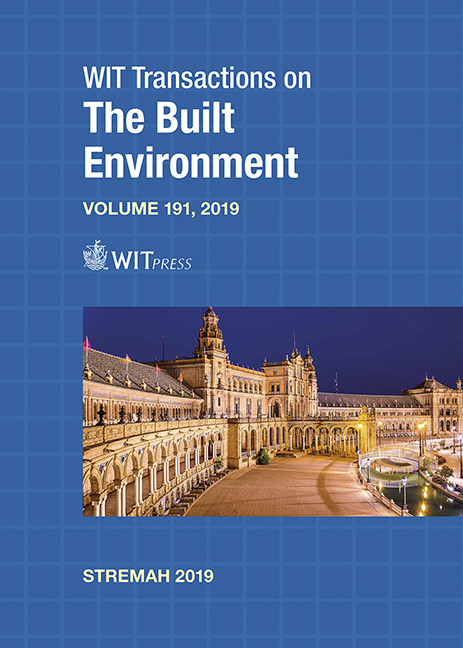PLANNING AND REHABILITATION IN HISTORICAL AREAS AND REPERCUSSIONS ON THE TOURISM AND ECONOMIC SECTORS IN AREAS OF PALESTINE
Price
Free (open access)
Transaction
Volume
191
Pages
13
Page Range
3 - 15
Published
2019
Paper DOI
10.2495/STR190011
Copyright
WIT Press
Author(s)
WAEL SHAHEEN
Abstract
The research aims to study the tourist reality in Hebron and create things to draw attention to these areas such as the development of tourism-related sectors, through the promotion of old craft industries, rehabilitating the market square in the Old City of Hebron, the preservation of archaeological and historical sites, and attract tourists from abroad and provide accommodation and services. The concept of tourism is growing, as it has become a phenomenon resulting from the need of exhausted humans from modern life pressure to achieve comfort, pleasure and change. Researchers give an economic definition to the concept of tourism and consider the direct and indirect economic activities. It is one of the most important industries of our time and it reflects the image of the civilized development of people in the world. It is considered as a source of national income, and it intervenes and overlaps with many fields, such as traditional industries, food, building facilities and others. The concept of tourism has been affected by scientific and technological progress, which has led to the expansion of its scope in many aspects and has increased its importance, becoming a promising industry. The concept of tourism will be discussed because of its impact and importance on economic life. The Israelis control tourism in the Palestinian areas, depriving it from returns and benefits, so it needs support and regulation. Our study will deal with the historic city of Hebron, especially the Old City, specifically the square market area, and will highlight the features of these areas by the work of a tourist path in the center of this city and by providing organized events through the town.
Keywords
tourism activities, economic activities, historical areas, service areas, redevelopment, rehabilitation, traditional craft




